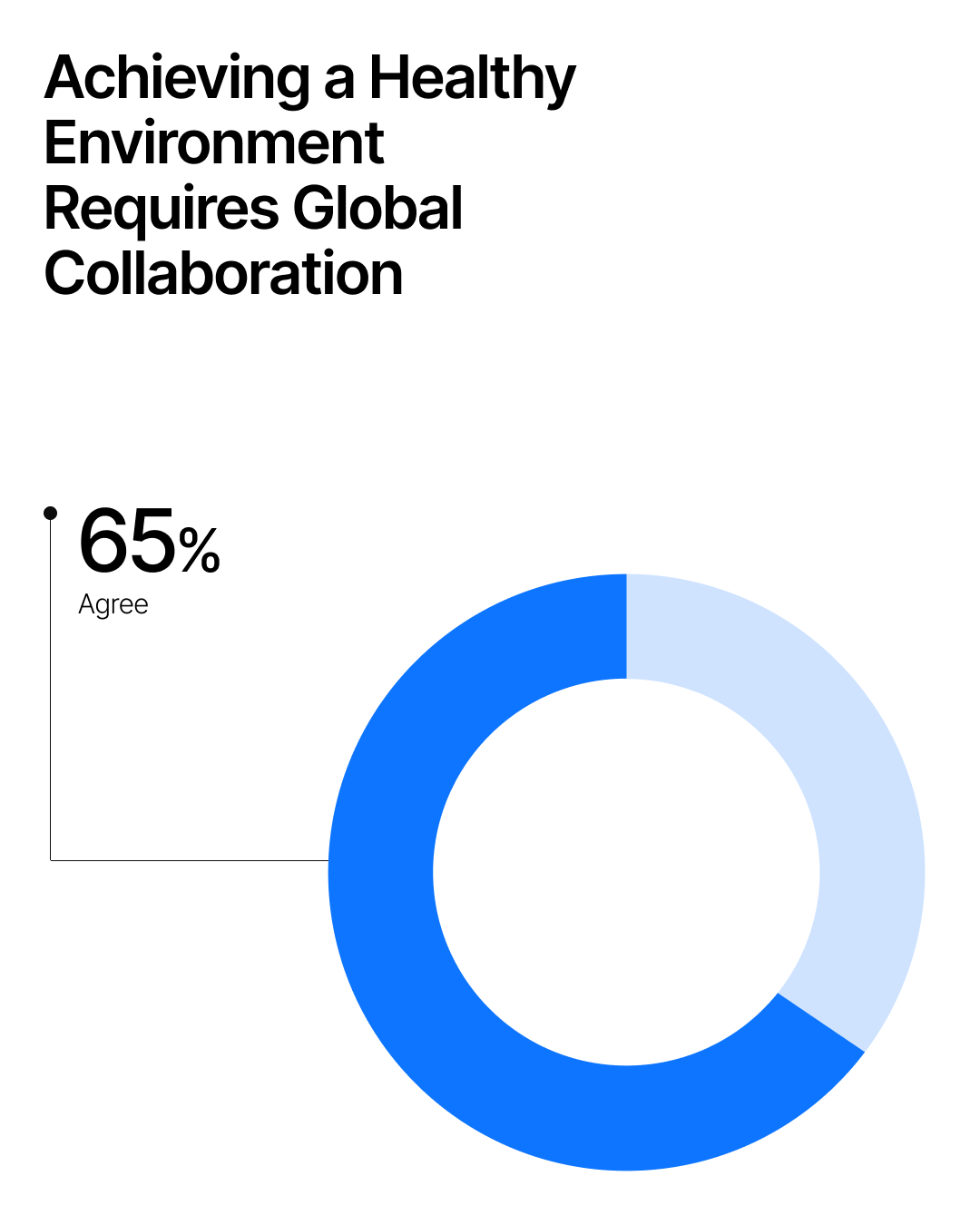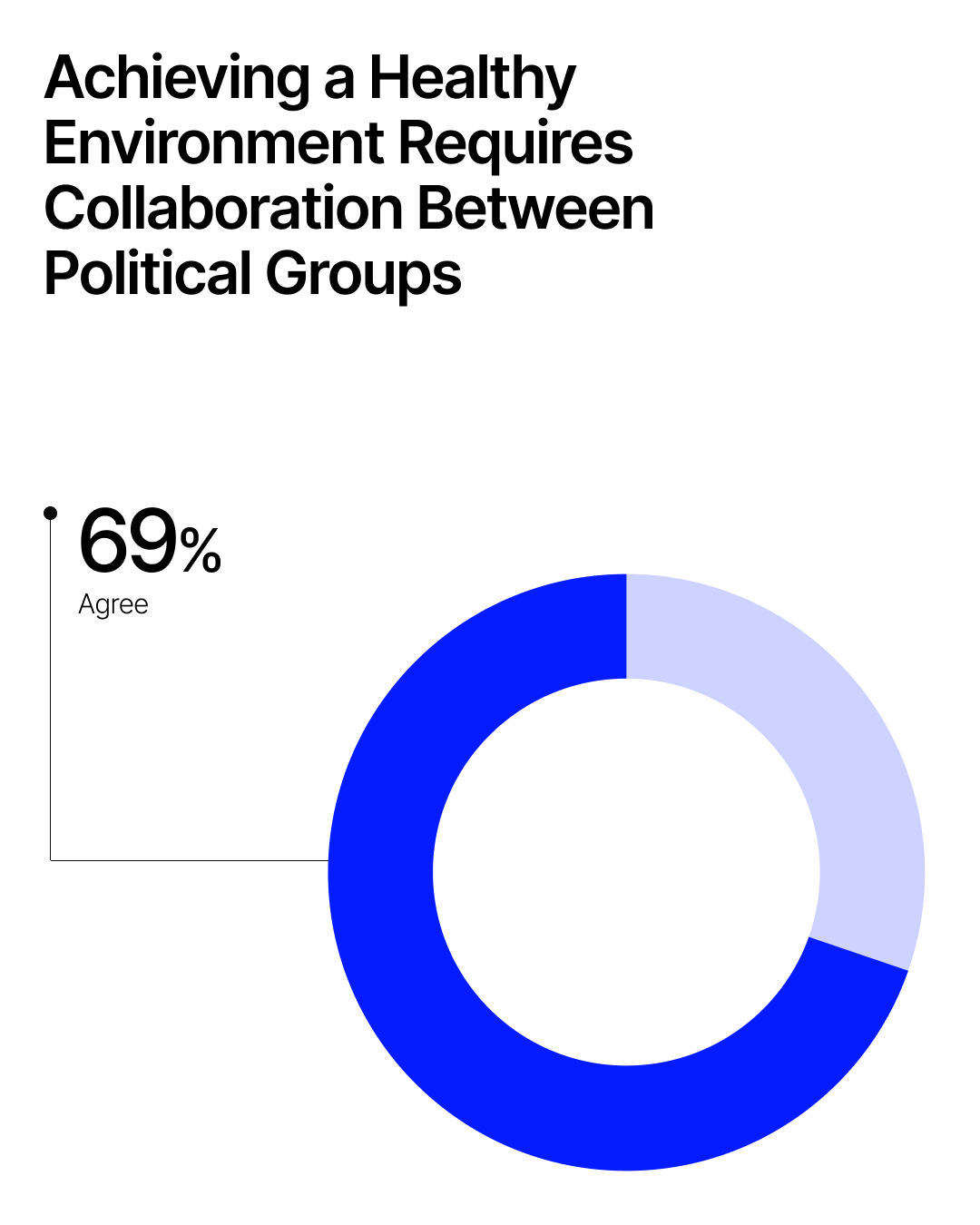A Public Mandate for Environmental Leadership
Amid global uncertainty, people see climate action as important, and expect businesses to take responsibility.
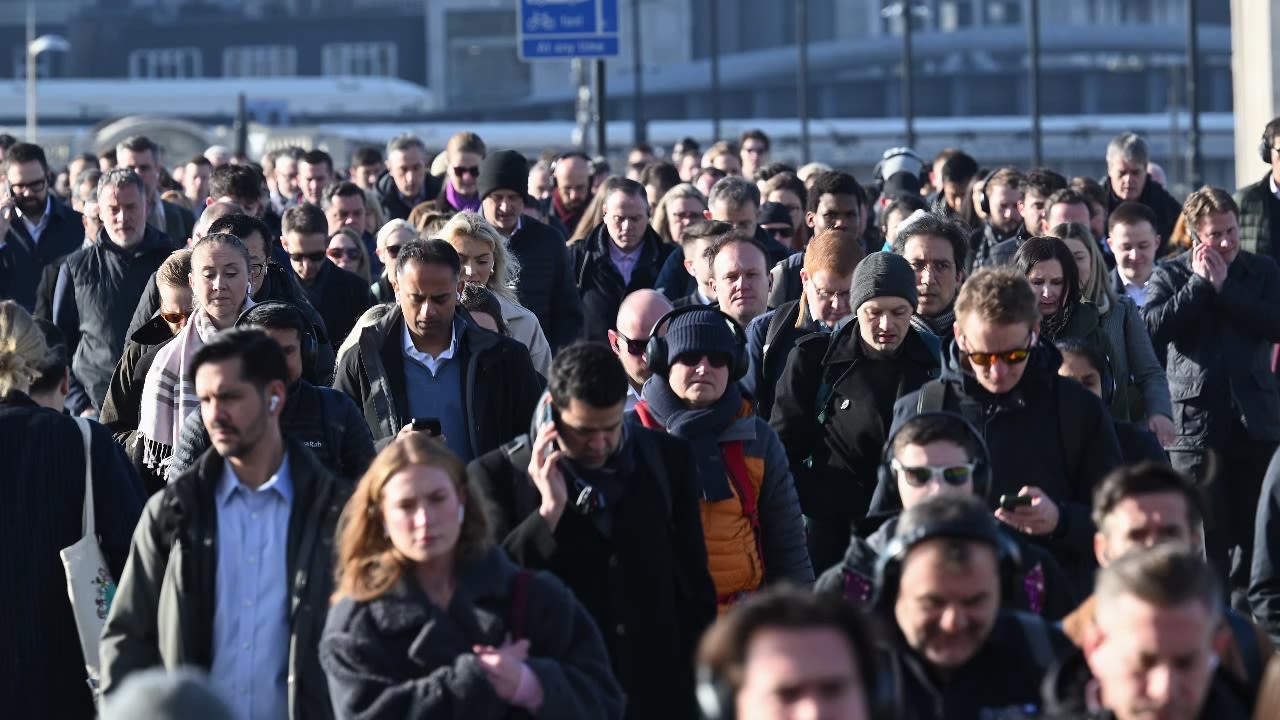
Introduction
This year, Edelman released several reports on trust that reveal deepening public grievance and, as a result, an increasing demand for business to act on the societal issues that matter most, including climate change.
Featuring key findings from our flagship Trust Barometer and Brand Trust special report, Edelman has created this visual compendium for CSOs and other sustainability leaders.
Our findings show that, as global uncertainty increases, so does the desire for companies to do more – not less – on climate change, and to communicate progress with clarity and authenticity.
In short, for business to maintain trust, action is critical; silence is not safety.
Global Consensus: Businesses Must Do More
Findings from the 2025 Edelman Trust Barometer: Additional Data on Business and Climate Change reveal a powerful and consistent global sentiment: The public demands more decisive climate action from the private sector.
Across 28 global markets, the majority of 33,000 survey respondents believe that business is not doing enough to address climate change.
This sense of inadequacy is echoed in both developed and emerging economies alike: Japan (60%), France (59%), the UK (58%), Colombia (57%), and Canada (53%) reflect the call for greater engagement.
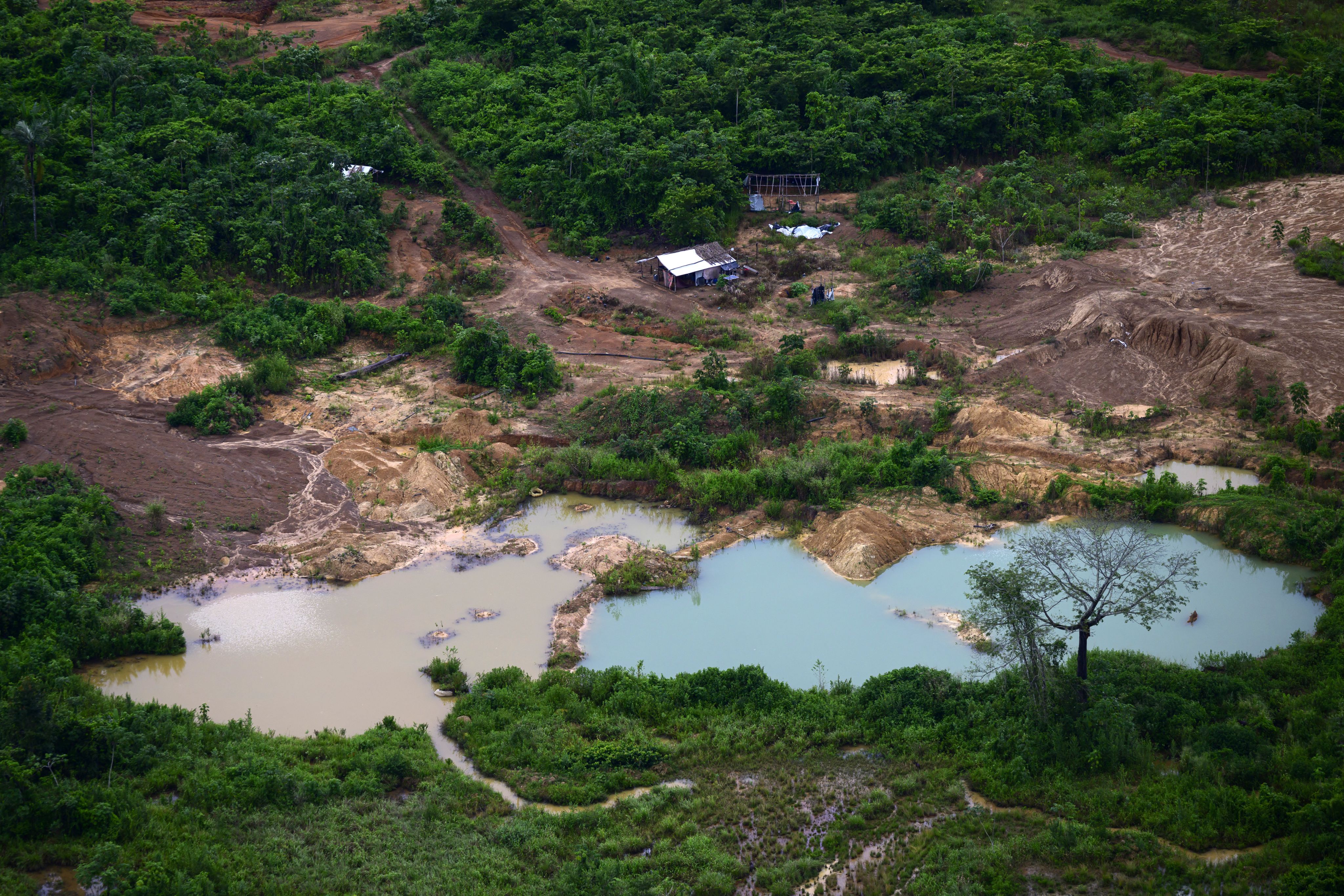
Underlying this conviction, the vast majority agree a healthy environment, including clean water and air, along with a more predictable climate that reduces extreme weather events such as heat waves and hurricanes, is foundational to a good life.
- 85% of people consider a healthy environment, defined as stable climate conditions, clean air and water, and access to natural resources, as either "very important" or "critically important" to their future.
- This ranks as high in importance as economic opportunity and trustworthy information.


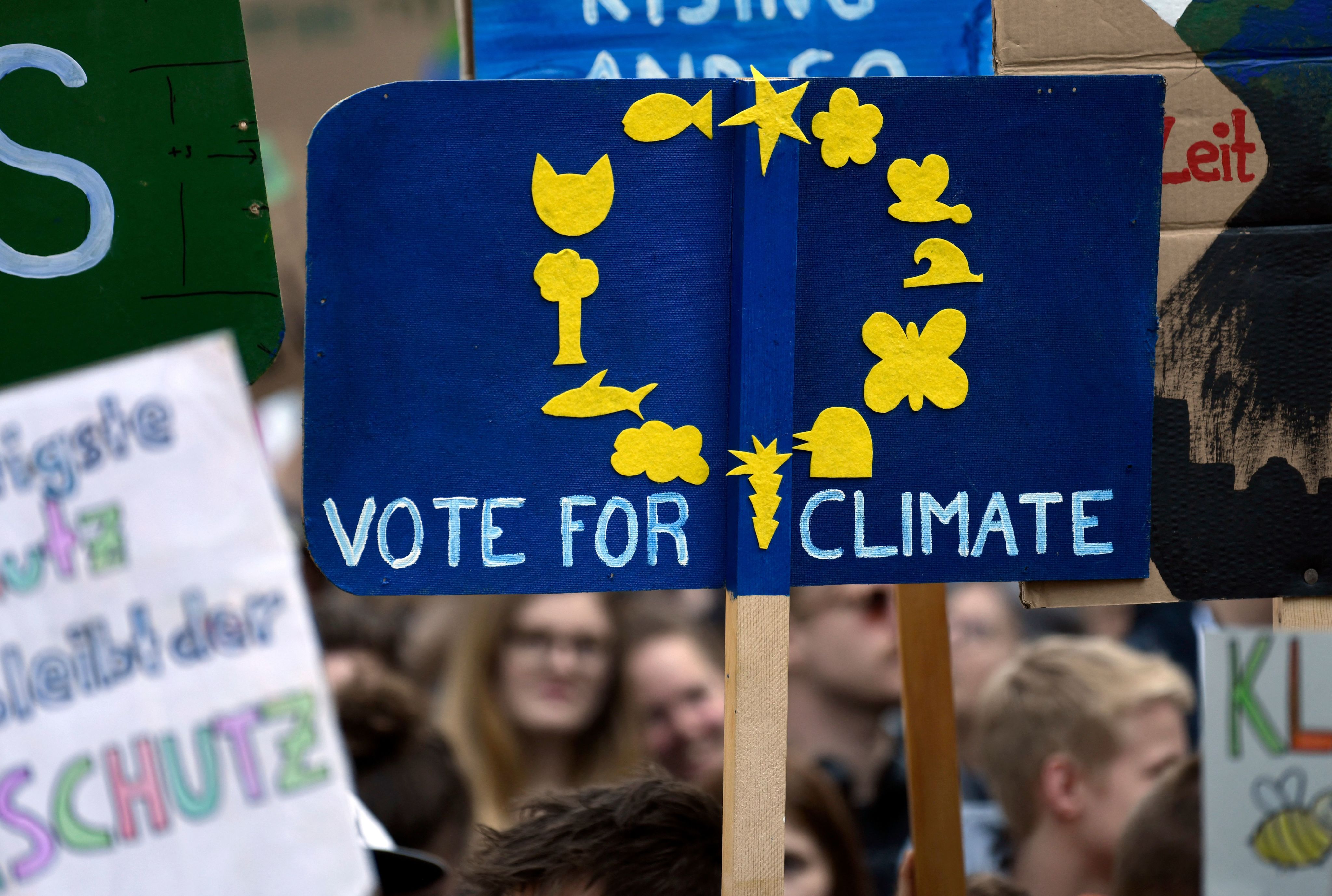
Across the globe, 51% of people believe that businesses are not doing enough to address climate change.
Only 8% believe that businesses have gone too far or are overstepping.
What’s at Stake for Business: Trust, Loyalty, & Reputation
The climate crisis has emerged as a broadly shared concern across ideologies and regions.
Despite political polarization, when respondents were asked if businesses were doing enough to address climate change, 46% of right-leaning individuals and 64% of left-leaning individuals globally said they were not.
This bipartisan sentiment raises the stakes for companies. If a business were to scale back its environmental commitments due to pressure from activists, research shows the backlash could be consequential.
Brands that neglect their climate responsibility risk eroding the very trust that underpins customer loyalty and market value.


Among global respondents who say business hasn’t done enough for climate change, over half (52%) say they would lose trust in a company that scales back its environmental commitments.
48% say they would be less likely to buy from that business.
Demonstrating commitment through meaningful action and clear communication reinforces trust and deepens consumer connection.
Among the societal issues that matter most, climate action stands out as a powerful purchase motivator:
55% of people globally say they are more likely to buy from a brand that combats climate change.
This preference spans generations, from 51% of 18–28-year-olds to 60% of those 61+.
And while support is highest among those who lean politically left (66%), 50% of right-leaning individuals say they’re more inclined to support brands taking action on climate.
The Cost of Silence: Trust and Consumer Loyalty at Risk
Our findings show that brands who stay silent or vague about their efforts to address societal issues, including the environment, risk real consequences.
The cost of inaction as well as the cost of perceived inaction is real:
- 53% of people say that if a brand does not communicate what it is doing to address societal issues, they will assume the brand is either doing nothing or worse, hiding something.
- Just 34% assume the brand is doing good but simply not talking about it.
The majority say they would be less likely to buy from a brand that ignores its societal obligations, such as combating climate change.
This perspective is even more pronounced among older generations. Those aged 61+ are the most likely to reduce trust (55%) or avoid purchasing (60%) from silent or inactive brands.

"Leading companies have significant resources and are widely recognized as important citizens. As climate change moves from theory to lived experience for billions of people, engagement with this challenge is no longer optional, it is expected."
Paul Dickinson
Founder, CDP, and co-host of the Outrage & Optimism podcast
Necessity for Collaboration
A significant unifying theme in the data is the belief that climate action requires cooperation across both political divides and national boundaries.
69% agree that achieving a healthy environment necessitates collaboration among people with differing political views. Similarly, 65% believe international cooperation is vital to success.
These beliefs underscore the broader reality: climate change is a global problem that cannot be solved in isolation.
Businesses, governments, and civil society must work in concert to achieve meaningful progress. While skepticism exists around some corporate climate efforts, there is also hope.
Nearly 40% of respondents believe that if a business were to fully commit its resources to environmental goals, it could have a "large, game-changing" positive impact.
This optimism reflects both the public's recognition of business influence and its demand for measurable results.
Business is not expected to solve climate change alone, but it is expected to lead, innovate, invest, and influence.
The Path Forward
The public continues to issue a mandate: businesses and brands must play a central role in creating a healthy environment and addressing climate change.
People care deeply about this issue and expect decisive action from the private sector.
In doing so, companies not only help confront one of the greatest challenges facing the global community, but also strengthen trust in their organizations.
Consumers likewise expect brands to act with urgency, and to communicate those actions with clarity and authenticity.

So What Can Sustainability Leaders Do?
- Understand your stakeholders: In a time of polarization, it’s critical to deeply listen and understand stakeholder expectations, identifying associated risks and opportunities. Target and focus your communications on addressing those expectations with transparency, and continue to refine and adapt.
- Focus on language: Identify tangible benefits and outcomes: clean air and water matter to consumers. Value creation and risk mitigation matter to leadership and shareholders. This approach reframes the vast challenge of climate change by highlighting a specific role a brand or business can play.
3. Build smart partnerships. People agree climate change requires unprecedented collaboration. Smart partnerships demonstrate an organization’s commitment to working together, creating value and enabling far greater action than going alone.
4. Silence is not safety. Businesses are expected to lead through meaningful action and clear, public communication. Demonstrating commitment in both practice and message reinforces trust and deepens consumer connection.
Ultimately, environmental leadership is measured not only by the actions that businesses take, but by the clarity and conviction with which they communicate those efforts.



